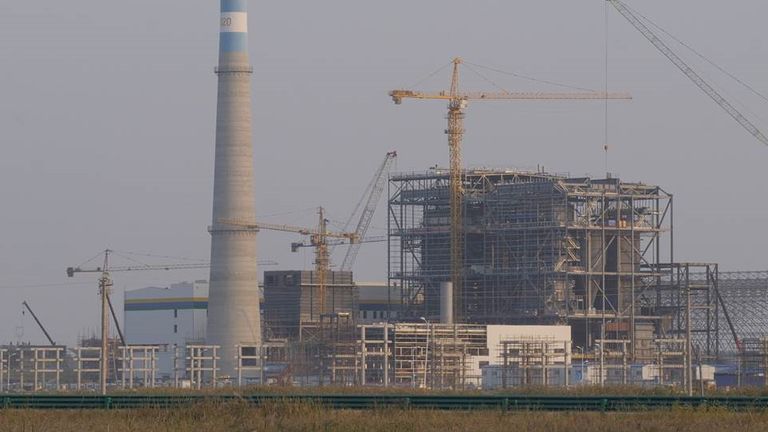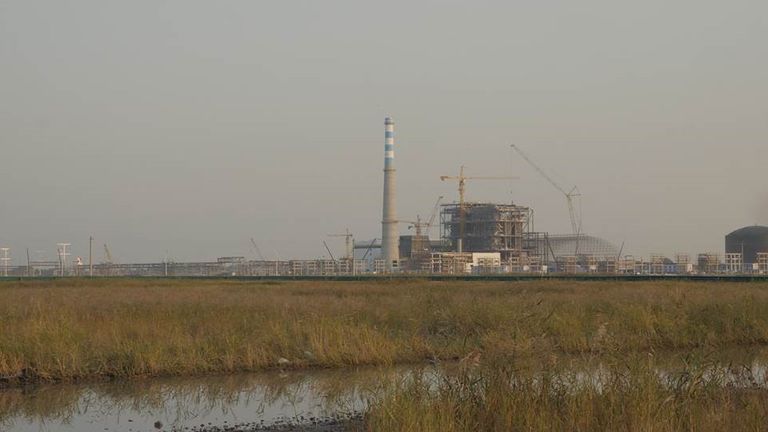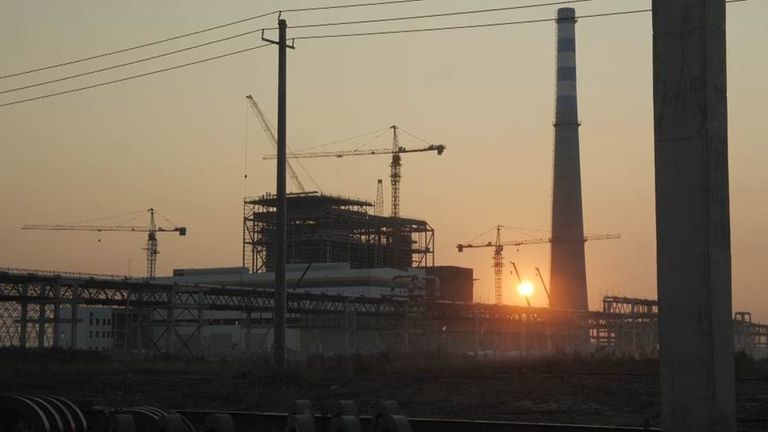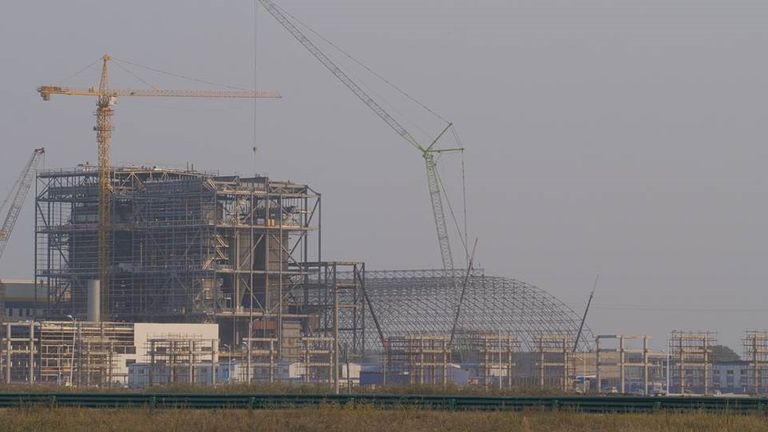Heilongjiang province, on the edge of Siberia, is China’s rust belt.
Abandoned factories and container ports crumble away, testament to how other provinces have taken its old place as the centre of Chinese industry.
Battered nodding donkey oil pumps diligently bob up and down, scrounging what’s left of the riches beneath the earth.
But even here, one thing does not die out: China’s dependence on coal power.
Near Daqing, an industrial city, a new coal plant is rising from the ground to supply a chemical works nearby.
The builders are still hard at work in the dying light of a Friday evening.
Chinese President Xi Jinping has pledged that China will reach peak carbon emissions by 2030 and that it will be carbon neutral by 2060, winning plaudits abroad.
It is a lofty promise but, as the rest of the world is drawing away from coal, China is digging in.
The plant near Daqing is just one of 231 coal burning facilities under construction or preconstruction in China right now, according to Global Energy Monitor, a US-based NGO.
The same organisation says that, in the first half of 2020, China has approved more coal power capacity than in all of 2018 and 2019 combined.
And COVID-19 may be exacerbating the trend.
As part of its economic recovery, China plans to spend three times as much on carbon intensive energy and infrastructure projects as it does on green ones, according to an analysis of 4,358 projects by the Centre for Research on Energy and Clean Air.
Put simply, to live up to its 2060 commitment, China must ditch coal.
The country consumes about half the world’s total coal and nearly 60% of its power comes from coal.
And yet construction continues.
“We are concerned about all these new coal projects being authorised because this may lead into a locked in scenario, meaning that you build all of this new coal power and the asset’s there,” says Ma Jun, one of China’s leading independent environmentalists and director of the Institute of Public and Environmental Affairs, in Beijing.
“And it’s very hard to try and get rid of them.”
“So I think the whole situation is hanging in the balance. We’re at the crossroads.”
“That’s why it’s so important for President Xi [to make this pledge]. This message is not just for the outside world. It’s also sending a strong signal inside.”
Harbin, the capital of Heilongjiang, is under a flood warning when Sky News visits.
This summer, China was devastated by the worst floods in a decade. Hundreds died.
Li Huilan, a local woman searching on the river bank for small fish to feed her pet tortoise, tells Sky News that things are getting worse.
“In the last two years, the water didn’t reach the steps. Only this year and last year, the situation is like this.”
She thinks China will meet its pledge.
“As long as President Xi is working at it, he will fulfil it and succeed with his determination.”
Xi’s public declaration does add heft – for citizens and, more importantly, for Chinese industry and for local governments, which have sometimes dragged their feet for previously-set targets.
:: Subscribe to the Daily podcast on Apple Podcasts, Google Podcasts, Spotify, Spreaker
How much store should the world set by this pledge, though?
China has made other promises that foreign governments say have not been kept: that Hong Kong would stay free, that islands in the South China Sea would not be militarised, that there was no such thing as detention centres in Xinjiang.
The only way China can meet those critics is with deeds, not words.





